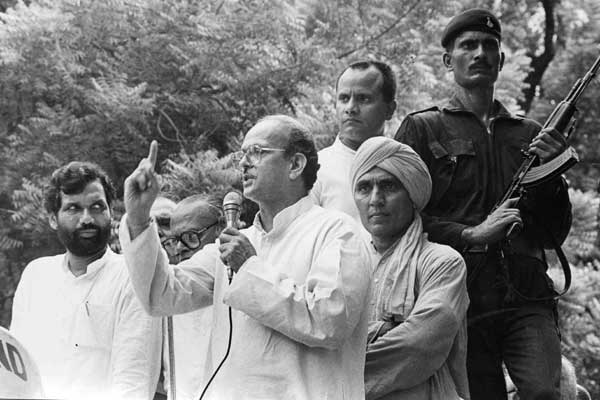From UPSC perspective, the following things are important :
Prelims level: Mandal Commission report
Mains level: comprehensive analysis of the forces that have shaped India's trajectory since the early 1990s

Central Idea:
The article discusses the three pivotal forces that shaped contemporary India – Mandal, Mandir, and Market, which were unleashed between August 1990 and August 1991. It highlights the significance of these forces in defining India’s trajectory and how they continue to influence the country’s politics, economy, and society today. Furthermore, it focuses on the forgotten legacy of Prime Minister P.V. Narasimha Rao, who played a crucial role in implementing economic reforms and reshaping India’s foreign policy during his tenure from 1991 to 1996. The article underscores the importance of trusting society over the state, the necessity of liberalization for welfare schemes, and the harmony embedded in Indian civilization, as exemplified by Narasimha Rao’s approach.
Key Highlights:
- Mandal, Mandir, and Market as defining forces in contemporary India.
- Significance of the Ram temple movement and the Mandal Commission report.
- P.V. Narasimha Rao’s pivotal role in liberalizing India’s economy and reorienting its foreign policy.
- Lessons from Narasimha Rao’s leadership: trusting society, liberalization-led growth, and harmony in Indian civilization.
Key Challenges:
- Balancing economic liberalization with social welfare and inclusive growth.
- Addressing religious and social tensions in a diverse society.
- Overcoming political opposition and vested interests to implement reforms.
Main Terms:
- Mandal: Refers to the implementation of backward caste quotas in government jobs.
- Mandir: Symbolizes the movement for the construction of a Ram temple in Ayodhya.
- Market: Represents the liberalization of India’s economy, opening it up to globalization and private sector participation.
- Bharat Ratna: India’s highest civilian honor.
- Liberalization: The process of reducing government restrictions and regulations in the economy.
- Globalization: Integration of economies and societies through international trade, investment, and technology.
Important Phrases:
- “Mandal, Mandir, and Market continue to define India.”
- “Narasimha Rao actively plotted to open India’s economy to the world.”
- “India grows best when politicians trust society rather than the state.”
- “Liberalization-led growth is a precondition for welfare schemes.”
- “Harnessing the harmony embedded in Indian civilization.”
Quotes:
- “India grows best when politicians trust society rather than the state.”
- “My model is not Margaret Thatcher but Willy Brandt.”
- “Why are there only Western examples being given where violence — on some pretext or the other — is the basic propensity.”

Anecdotes:
- L.K. Advani’s rath yatra from Somnath to Ayodhya symbolized BJP’s alignment with the Ram temple movement.
- Narasimha Rao’s astute political maneuvering to implement economic reforms despite opposition from within his own party.
Useful Statements:
- “Narasimha Rao’s reforms were not confined to economics alone.”
- “India grows best when politicians trust society rather than the state.”
- “Liberalization-led growth is a precondition for welfare schemes.”
Examples and References:
- Implementation of backward caste quotas in government jobs following the Mandal Commission report.
- L.K. Advani’s rath yatra as a symbol of BJP’s support for the Ram temple movement.
- Narasimha Rao’s economic reforms leading to increased tax revenue, enabling government spending on welfare schemes.
Facts and Data:
- P.V. Narasimha Rao served as Prime Minister of India from 1991 to 1996.
- The Ram temple movement gained momentum in the early 1980s.
- Economic liberalization measures were initiated in mid-1991.
Critical Analysis:
The article presents a comprehensive analysis of the forces that have shaped India’s trajectory since the early 1990s, focusing on both political and economic dimensions. It highlights the role of leaders like Narasimha Rao in driving significant reforms despite facing numerous challenges. However, it also acknowledges the shortcomings and failures of political leadership, particularly in handling religious and social tensions. The emphasis on trust in society, liberalization-led growth, and harmony reflects a nuanced understanding of India’s complex socio-political landscape.
Way Forward:
- Emphasize continued trust in society over excessive state intervention.
- Prioritize economic liberalization to enable inclusive growth and welfare schemes.
- Promote harmony and understanding among diverse religious and cultural communities.
- Encourage political leadership to learn from past successes and failures to navigate future challenges effectively.
Get an IAS/IPS ranker as your 1: 1 personal mentor for UPSC 2024
